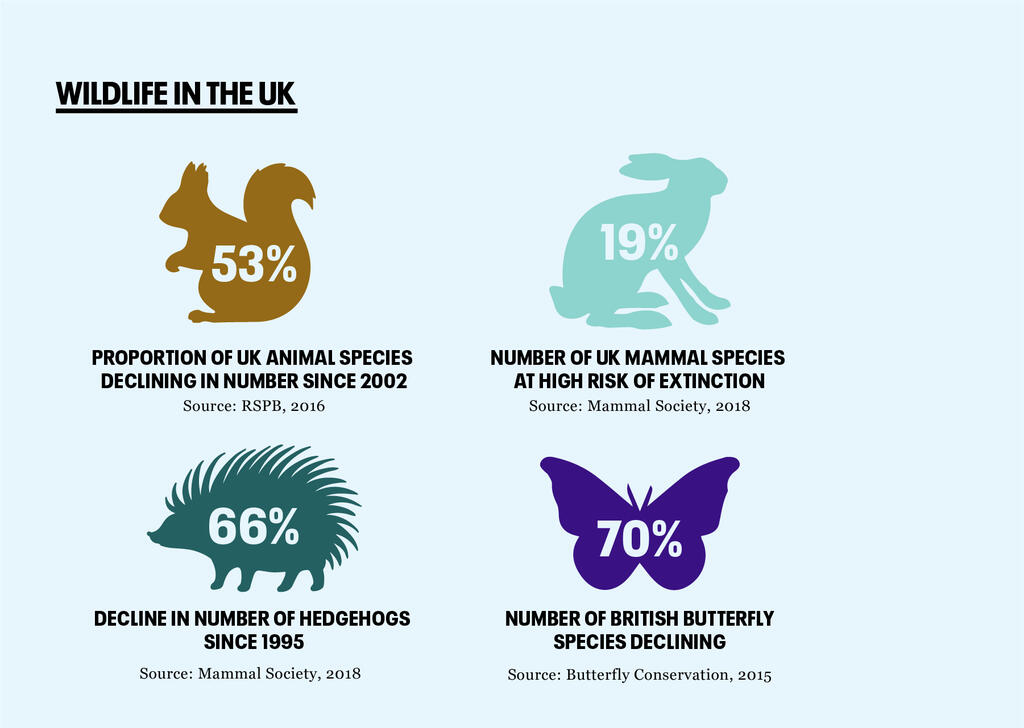
UK report: Next generation will inherit worse environment
A report by the UK’s Natural Capital Committee (NCC) shows the Government is way off course to meet its goal of improving the state of the environment within a generation (25 years), with many areas continuing to deteriorate, including biodiversity, water pollution, and soil depletion.

In a 2011 White Paper, the Government pledged “to be the first generation to leave the natural environment of England in a better state than it inherited.” – it set up the NCC to advise it on how best to achieve this target and in 2018, published its 25 Year Environment Plan (YEP).
The NCC’s report assesses overall progress against the 25 YEP to date, across seven natural “assets”: atmosphere, freshwater, minerals and resources, marine, soils, land and wild species. The report concludes:
“Nine of the 25 years have already passed, and it is now looking very likely the next generation will inherit a poorer set of natural assets.”
Not a single one of the seven areas received a ‘Green’ (improving) rating – resource use and atmospheric pollution were rated as ‘Amber’ (no change), whereas the five remaining areas were categorised as ‘Red’ (deteriorating).
Biodiversity
The health of ecosystems, including the diversity of land, freshwater and marine species, is continuing to decline, as also highlighted in this year’s UK Biodiversity Indicators report. Out of 24 biodiversity indicators, 14 showed long-term decline, including continued deterioration of UK habitats and species. The Government failed on 17 of its 20 biodiversity targets that were due to be met this year. Only half of nature reserves are in ‘favourable’ condition and insect pollinator populations have declined by a third since 1980. In addition, Government spending on conservation has declined by 33% in 5 years.

Air quality
While air pollution has slightly decreased at the national level in recent years, many urban areas still have unsafe air, with some areas worsening, and long-term exposure to particulate pollution still causes an estimated 29,000 early deaths every year.
Freshwater and oceans
Not a single surface water body in the UK passed the chemical pollution test last year, largely due to contamination from sewage and agricultural runoff, and only 16% were deemed to have ‘good’ ecological status. UK marine areas are continuing to acidify due to absorption of carbon dioxide emissions.
Soil
Soil health is continuing to deteriorate due to land use change – degradation through erosion, intensive farming and urban development incurs losses estimated at between £0.9-1.4 billion per year for England and Wales.
Resources and waste
There has been no overall reduction in mineral extraction. Household waste recycling rates have not improved since 2013 and are still at only 44%. In addition, the number of flytipping incidents increased from 715,000 to 1.07 million.
What’s next?
The NCC report laments the lack of baseline data and systematic monitoring for many of these areas, which makes it difficult to measure change. Nevertheless, existing data makes it clear that overall, things are still moving in the wrong direction. In addition to better monitoring and accountability, improving the state of the environment for future generations requires ending the underlying causes of degradation – the unsustainable growth in consumption and population.


